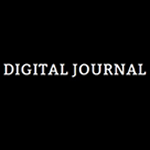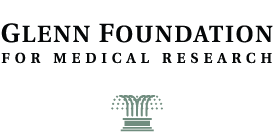2017 NEWS
 November 14, 2017: Stem cells express genes differently in the lab dish than in the body
November 14, 2017: Stem cells express genes differently in the lab dish than in the body
The Stanford research suggests that any conclusions about stem cell function based on studies of stem cells in lab dishes may now need to be reconsidered in light of the fact that the cells’ biology changes during isolation. Full article
 November 4, 2017: Clinical trial finds blood-plasma infusions for Alzheimer’s safe, promising
November 4, 2017: Clinical trial finds blood-plasma infusions for Alzheimer’s safe, promising
In a small safety trial based on preclinical work by a Stanford researcher, participants receiving blood plasma infusions from young donors showed some evidence of improvement. Full article
 November 1, 2017: Infusions of young blood tested in patients with dementia
November 1, 2017: Infusions of young blood tested in patients with dementia
The first controlled, but controversial and small, clinical trial of giving young blood to people with dementia has reported that the procedure appears safe. It has also hinted that it may even produce modest improvements in the daily lives of people who have Alzheimer’s disease. Full article
 October 18, 2017: Is aging a disease that can be cured?
October 18, 2017: Is aging a disease that can be cured?
The oldest person that we know of lived to be 122 years old. Is that the limit? Is aging a disease that can be conquered and reversed? Scientists think it may be possible – and sooner than we think. At a gathering at The New Yorker’s TechFest in early October, Bill Maris, a venture capitalist involved in aging research, and Thomas Rando, a professor of neurology at Stanford University acknowledged that the study of aging is a tricky business – and it’s relatively new. Full article
 August 20, 2017: Beautiful and Immortal
August 20, 2017: Beautiful and Immortal
PresaDiretta questions one of the most powerful myths of contemporary society, eternal youth. Can you be young forever? In the United States, they are not only convinced, but are preparing to break the most extreme of scientific limits: death. There is, in fact, who is preparing to become immortal. American technology giants are investing a river of money on anti-aging research, the dream of eternity is the business of the future. Ultimately, for the foremost, for the optimists convinced that sooner or later the way to be reported in life even after death someone will find it, there are those who thought of hibernation. Watch episode (download required)
 August 20, 2017: Now Silicon Valley techies think they can live for ever
August 20, 2017: Now Silicon Valley techies think they can live for ever
After decades of quiet toil in laboratories, novel drugs are emerging that could rewrite the rules of old age, how we define long life and, ultimately, how we organise as a society. Full article
 August 19, 2017: Inside Silicon Valley’s quest to defeat ageing
August 19, 2017: Inside Silicon Valley’s quest to defeat ageing
The Sunday Times’ tech correspondent Danny Fortson talks to the scientists and executives pledging to redefine life as we know it about why we may be finally on the cusp of an age revolution, taking the pain out of being old, the wonder drugs already in circulation, on whether we are playing god, the rejuvenating effects of young blood, freezing your stem cells, the merging of artificial intelligence and medicine, and what the future of ageing looks like. Listen to the podcast
 July 31, 2017: Researchers Work on an “Atlas of Aging”
July 31, 2017: Researchers Work on an “Atlas of Aging”
Death may be inevitable. But what about aging? If we could figure out what biological switches get flipped to start the process of decline, could we reverse it? Even prevent it? Full article
 July 15, 2017: Blood from young animals can revitalize old ones
July 15, 2017: Blood from young animals can revitalize old ones
Parabiosis is a class of techniques in which two living organisms are joined together surgically and develop single, shared physiological systems, such as a shared circulatory system. Through surgically connecting two animals, researchers can prove that the feedback system in one animal is circulated and affects the second animal via blood and plasma exchange. Full article
 June 20, 2017: How to encourage muscle stem cells to replace missing muscle? A familiar home, a few friends and some healthy exercise
June 20, 2017: How to encourage muscle stem cells to replace missing muscle? A familiar home, a few friends and some healthy exercise
Major traumatic events such as landmine explosions can rip away whole chunks of tissue and make it difficult or impossible to ever regain function. In the face of such complete devastation, even muscle stem cells falter. Now Stanford neurologist Thomas Rando, MD, PhD, and former postdoctoral scholar Marco Quarta, PhD, have outlined a three-part approach that, at least in mice, helps muscle stem cells grow new muscle tissue. Full article
 April 24, 2017: City Visions: Are we close to a cure for aging?
April 24, 2017: City Visions: Are we close to a cure for aging?
What if we could end aging and prevent age-related diseases? Joseph Pace and guests explore recent advances in aging and longevity research. Listen to the interview
 April 19, 2017: Protein isolated from human cord blood has antiaging effects on memory in mice
April 19, 2017: Protein isolated from human cord blood has antiaging effects on memory in mice
Researchers have found a protein in the blood of human umbilical cords that improves memory and learning in old mice. The provocative finding joins a flurry of other recent, sometimes controversial work attempting to find factors that explain the apparent antiaging properties of young blood. Full article
 April 17, 2017: a16z Podcast: The Science of Extending Life
April 17, 2017: a16z Podcast: The Science of Extending Life
Is it real or science fiction to dream of being able to treat… getting old? In this episode, we discuss with Dr. Thomas Rando from Stanford, Kristen Fortney, CEO of BioAge, and a16z’s general partner Vijay Pande where we are in the field of “geroscience” — the idea of studying aging itself, and aging as the root risk for all aging related disease. Far from science fiction, recent discoveries have given us a whole crop of promising breakthroughs to treat aging, such as parabiosis (young blood infused into old blood), senolytics, and rapamycin, and more. Listen to the podcast
 April 18, 2017: Protein primes mouse stem cells to quickly repair injury
April 18, 2017: Protein primes mouse stem cells to quickly repair injury
Pretreatment with a stem-cell-activating protein significantly enhances healing in mice, Stanford researchers say. The approach could eventually help people going into surgery or combat heal better from injuries they sustain. Full article
 April 5, 2017: Monounsaturated fats help roundworms live longer
April 5, 2017: Monounsaturated fats help roundworms live longer
Roundworms storing monounsaturated fats in their guts live longer, according to Stanford researchers. Their study links epigenetic regulation with fat metabolism, and may have implications for many species. Full article
 April 3, 2017: Silicon Valley’s Quest To Live Forever
April 3, 2017: Silicon Valley’s Quest To Live Forever
Can billions of dollars’ worth of high-tech research succeed in making death optional? Full article
 January 17, 2017: Have Scientists Found a Way to Actually Reduce the Effects of Aging?
January 17, 2017: Have Scientists Found a Way to Actually Reduce the Effects of Aging?
Researchers at the Salk Institute in California have successfully induced cells to behave like younger cells. Full article
